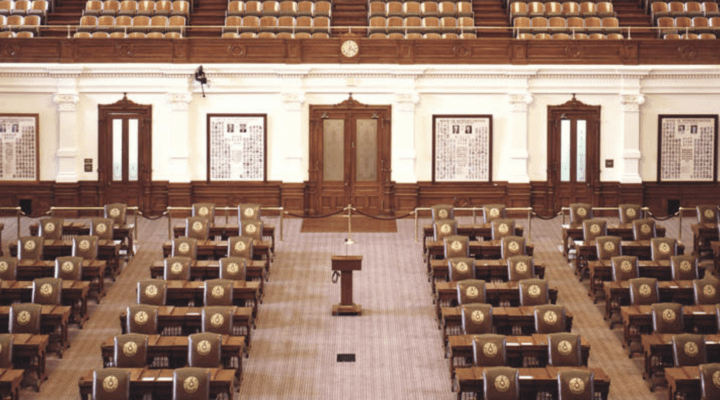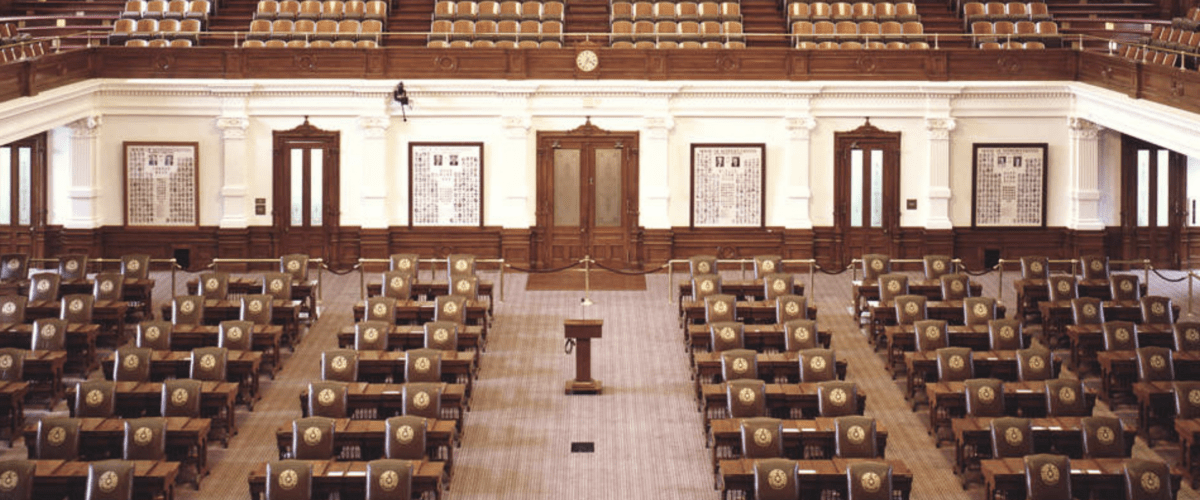A 1998 graduate of Baptist Theological Seminary at Richmond is pursuing a new calling this year by running for a seat in the Texas House of Representatives.
Ginny Brown Daniel grew up at First Baptist Church of Auburn, Ala., where then-pastor Howard Roberts was influential in her formation and in her decision to attend BTSR.
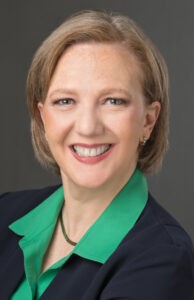
Ginny Brown Daniel
Like many seminary-trained and God-called women seeking pastoral positions, Daniel found mainly closed doors in Baptist life. She was welcomed into the United Church of Christ, where she served a congregation in Maryland and then a congregation in Spring, Texas, where she still lives. The last nearly six years of her ministry was as a regional leader within the UCC, a role that concluded last spring.
While it is not unheard of for clergypersons to run for or serve in political office, it still remains unusual. No national statistics are kept on such matters.
However, being a clergyperson is not the only way Daniel’s campaign makes her an outlier. She’s also a woman running for a seat in a state House that currently is 75% male. And she’s a Democrat running in a district that has been reliably Republican and for a legislature that currently is 55% Republican.
Texas House District 150 encompasses the northeastern suburbs of Houston, including Spring and Aldine, Klein, Tomball; and the southern part of The Woodlands.
As the only Democrat who has filed to run in the district, she’ll be on the sidelines in the state’s March primaries. The Republican primary features a four-person race, including the incumbent and the person who previously held the seat for 15 years until unseated six years ago.
The incumbent, Valorie Swanson, defeated Debbie Riddle in the 2016 Republican primary and then won the general election against a Democratic candidate. Swanson and Riddle are both conservative Republicans — even by Texas standards.
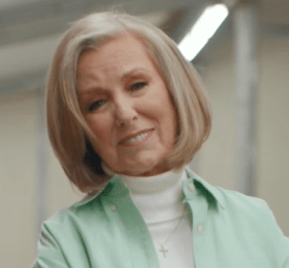
Debbie Riddle
In 2007, Riddle authored House Bill 1034, which added the words “one state under God,” to the Texas State Pledge. That same year, she opposed a bill protecting breastfeeding in public, stating that women should be “modest.” Then in 2015, Riddle authored House Bill 1748, which would have jailed or fined transgender persons for using public restrooms that did not fit their birth chromosomes. Riddle also was known for several colorful comments, including a 2003 interview with the El Paso Times, where she said: “Where did this idea come from that everybody deserves free education, free medical care, free whatever? It comes from Moscow, from Russia. It comes straight out of the pit of hell. And it’s cleverly disguised as having a tender heart. It’s not a tender heart. It’s ripping the heart out of this country.”
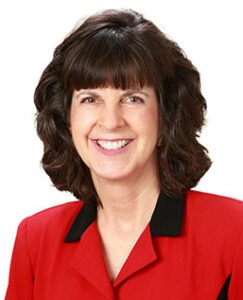
Valorie Swanson
Yet Swanson ran against her in 2016 by positioning herself further to the right. In 2017, she attempted to force the Texas House to vote on another transgender bathroom bill. She later authored House Bill 1485, which she said would “free our teachers (from) fear of frivolous accusations” when they question scientific theories such as climate change. She explained that “certain scientists have faked the temperature results” on climate change and that teachers must be free to offer alternative views to climate change. In 2016 she also accused Riddle of killing a bill that would “protect” Texans from Sharia law.
Last year, Swanson authored House Bill 25, an anti-transgender bill that eventually was signed into law, requiring student athletes who compete in interscholastic events to play on sports teams that correspond with the sex listed on their birth certificates.
Thus, this year’s primary battle between these two women has drawn statewide attention.
And for now, Daniel is watching and listening and learning. She’ll most likely face either Riddle or Swanson in the November general election.
One of the ways she’s listening is by attending every monthly meeting of the four school boards that serve the district.
“For me, it’s a way to very quickly learn what’s going on, what are the priorities and what are the challenges,” Daniel explained. “What I have observed is that there is a sense of fatigue from the pandemic and all that means and there is a kind of underlying fatigue of this politicizing education. And how that gets expressed or redirected in these kind of board meetings is very interesting.”
It is the political division of the nation, the state and especially her district that prompted Daniel to get in the race. “With all the legislation that was happening last year, one after the other — voter suppression and reproductive rights ban and gun carry — I kept getting agitated, and then when the trans youth bill passed, this voice in my spirit said, ‘You need to run for representative.’
“I kept getting agitated, and then when the trans youth bill passed, this voice in my spirit said, ‘You need to run for representative.’”
“I take that voice very seriously,” she continued. “At first I felt like Moses, ‘Oh, no, no, no, you don’t understand. I’ve never run for office.’”
That led her to begin researching the district, and what she discovered surprised her.
She learned, for example, that 56% of the district’s population are persons of color — not the stereotype of Republican-leaning suburbs. While 43% of the district’s residents are white, 30% are Hispanic, 17% are African American and 8% Asian American.
“That says to me that we’re in a district that’s changing,” she explained. “It is no longer the rural district, no longer the affluent oil executives, and it’s no longer just the white growing suburbs that it was in 2010.”
She added: “I realized our district is not being represented fairly by the incumbent. Eleven of the bills she sponsored last year were banning mask mandates, two bills against trans youth, and nothing that goes to help the residents in this area.”
And here is where Daniel believes the skills of a seasoned minister offer value.
“I have the skill set from a leadership perspective, but I also know community organizing. I know how to bring people together who have different views and politics and beliefs, how to create a space to put something meaningful together. That’s the spiritual reason why I’m running.”
“I know how to bring people together who have different views and politics and beliefs, how to create a space to put something meaningful together.”
And while an ordained minister may appear an unconventional candidate for a state legislature, it also can be an asset, she said. “We’re in the buckle of the Bible Belt and to be able to say at the beginning that I’m an ordained minister, it has helped me in going into African American churches so it doesn’t feel like I’m just a politician. … It is also helping me in building relationships with the many different aspects of the Hispanic community …. I have been meeting with those in the Muslim community; I was very active in the Spring interfaith community.”
While those who oppose the mere idea of a woman pastor aren’t her natural target audience, she also knows there could be anxiety about her from the other side of the theological aisle, too. “There may be some anxiousness among those who have been hurt by the church in whatever capacity,” such as LGBTQ persons; “some are very leery. And those who are progressive Democrats and humanists may also be leery.
“How can they trust me? I’ve got to make sure my platform isn’t just as an ordained minister but as a resident and a neighbor who also leads from a place of faith.”
And if any political opponent wants to appeal to the Bible for their political positions, Daniel believes she is ready for the fight. “There are few people who can go to toe-to-toe with someone on Scripture. I know it is never wise (to do that) and I know there are neighbors of mine who are being unfairly treated. … (but) I know how to speak of a Christ and a God who loves all, creates all.”
As a seminarian, she was deeply influenced by the writing of Howard Thurman, a 20th century pastor and civil rights leader. “Thurman said Jesus was always on the side of the people whose backs were against the wall,” Daniel said. “That has been my modus operandi. I’m going to call this (campaign) a continuation of my calling, when I think about my neighbors whose backs are against the wall.”
Related articles:
It’s still rare for a Baptist minister to serve in Congress | Analysis by Mark Wingfield
Houston pastor voted off local school board by angry parents who called him a Black liberal racist
SBC pastor calls Vice President Kamala Harris a ‘Jezebel’ two days after inauguration

